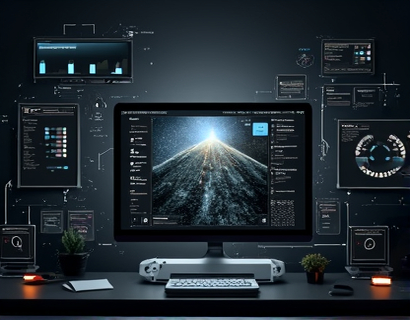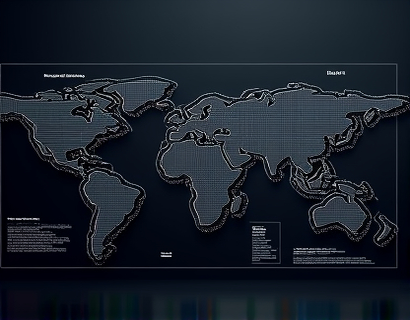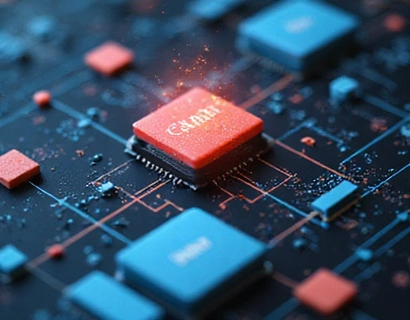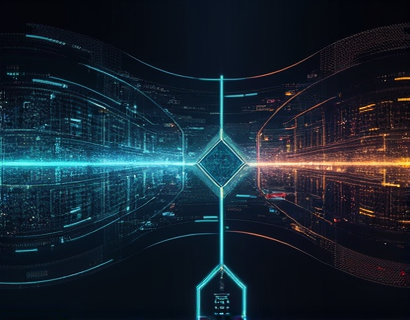Transforming Construction Project Management with AI Chat Interfaces
In the rapidly evolving landscape of construction and project management, the integration of artificial intelligence (AI) is revolutionizing the way professionals approach their work. An AI chat interface has emerged as a pivotal tool, offering instant expert insights on build services and industry trends. This technology streamlines decision-making processes and enhances workflow efficiency, making it an indispensable asset for construction professionals and project managers.
The core functionality of an AI chat interface lies in its ability to provide quick and reliable information. Users can interact with the system in real-time, receiving expert guidance on various aspects of construction projects. This immediate access to knowledge is crucial in an industry where time is of the essence and decisions often have significant financial and operational implications.
Instant Expert Insights
One of the most significant advantages of an AI chat interface is its capacity to deliver instant expert insights. Construction projects involve a multitude of variables, from material selection and cost estimation to regulatory compliance and safety standards. An AI system can draw from a vast database of expert knowledge to provide precise answers to complex questions.
For instance, a project manager can ask about the best practices for foundation construction in a specific geological area, and the AI will provide detailed recommendations based on historical data and current industry standards. This level of expertise is typically only accessible through extensive research or consulting with multiple experts, which can be both time-consuming and costly.
Enhancing Decision-Making
The ability to access expert insights instantly transforms the decision-making process in construction project management. With an AI chat interface, professionals can make informed choices quickly, reducing the risk of errors and delays. This is particularly beneficial in scenarios where time is critical, such as meeting project deadlines or responding to unforeseen site conditions.
Moreover, the AI can analyze current trends and predict future developments in the industry, allowing project managers to stay ahead of the curve. For example, the system can inform users about new materials that offer better durability or cost savings, or alert them to changes in building codes that could impact the project.
Streamlining Workflow Efficiency
Workflow efficiency is a key concern in construction project management. An AI chat interface can significantly enhance this by automating routine tasks and providing real-time support. For instance, a user can ask the AI to generate a preliminary cost estimate for a new project, and the system will quickly compile the necessary data to produce an accurate figure.
Additionally, the AI can assist in scheduling and resource allocation. By analyzing project requirements and available resources, it can suggest optimal timelines and assign tasks to team members based on their availability and expertise. This not only streamlines the workflow but also ensures that the project stays on track and within budget.
Access to Comprehensive Knowledge Base
The AI chat interface serves as a comprehensive knowledge base for construction professionals. It aggregates information from various sources, including industry reports, academic research, and best practice guidelines. This centralized repository of knowledge ensures that users have access to the most up-to-date and relevant information at their fingertips.
For example, a construction manager can inquire about the latest advancements in modular construction techniques, and the AI will provide a detailed overview, including case studies and performance metrics. This level of access to comprehensive knowledge is invaluable for staying competitive in the industry.
Improving Collaboration and Communication
Effective collaboration and communication are essential for the success of any construction project. An AI chat interface can facilitate this by providing a platform for seamless information exchange among team members. Users can ask the AI to summarize project updates, highlight key issues, and suggest action items, ensuring everyone is on the same page.
Furthermore, the AI can translate complex technical information into understandable language, bridging the gap between different levels of expertise within the team. This promotes better understanding and cooperation, ultimately leading to more efficient project execution.
Enhancing Safety and Compliance
Safety and compliance are paramount in the construction industry. An AI chat interface can play a crucial role in ensuring that projects adhere to safety standards and regulatory requirements. Users can ask the AI about specific safety protocols for certain tasks or materials, and the system will provide detailed guidelines and best practices.
Additionally, the AI can monitor compliance with local and national regulations, alerting users to any potential issues before they become problematic. This proactive approach helps prevent accidents and legal issues, contributing to a safer and more compliant construction environment.
Supporting Sustainable Practices
The construction industry is increasingly focused on sustainability, and an AI chat interface can support this initiative by providing insights into eco-friendly practices and materials. Users can ask about the environmental impact of different construction methods or inquire about sustainable materials that meet specific performance criteria.
The AI can also suggest ways to reduce waste and energy consumption on-site, offering tips and strategies based on best practices and recent research. This support for sustainable practices not only benefits the environment but can also lead to cost savings and improved project outcomes.
Overcoming Information Overload
In an era where information is abundant but often overwhelming, an AI chat interface helps construction professionals navigate the vast sea of data available. By filtering and presenting relevant information in a structured and accessible manner, the AI reduces the risk of information overload.
For instance, a project manager dealing with multiple projects can ask the AI to prioritize tasks based on urgency and importance, or to provide a quick overview of key metrics for each project. This targeted approach ensures that users can focus on what truly matters, enhancing their productivity and decision-making capabilities.
Building a Trustworthy Relationship
Trust is a fundamental component of any successful project. An AI chat interface can help build this trust by consistently providing accurate and reliable information. Users can rely on the AI to deliver honest and unbiased insights, which is crucial in an industry where trustworthiness can significantly impact project success.
Moreover, the AI's ability to learn from user interactions and adapt to specific project needs fosters a personalized experience. Over time, the system becomes more attuned to the user's preferences and requirements, further enhancing the quality of the insights provided.
Future-Proofing Construction Project Management
As the construction industry continues to evolve, the integration of AI chat interfaces is not just a trend but a necessity. These systems are well-positioned to adapt to future challenges and opportunities, ensuring that construction project management remains efficient and effective.
For example, as building technologies advance, the AI can incorporate new tools and methodologies into its knowledge base, providing users with cutting-edge solutions. Additionally, the AI can help predict and prepare for emerging trends, such as the increased use of automation and digital twins in construction projects.
Conclusion
The implementation of an AI chat interface in construction project management represents a significant leap forward in the industry. By providing instant expert insights, streamlining decision-making, and enhancing workflow efficiency, this technology addresses some of the most pressing challenges faced by construction professionals.
As the industry continues to embrace innovation, the role of AI in supporting and augmenting human expertise will only grow. Construction professionals and project managers who adopt these tools will be better equipped to deliver successful projects, stay competitive, and contribute to the sustainable development of built environments.









































